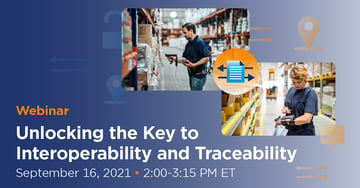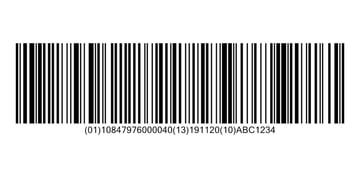FoodLogiQ is proud to join other industry leaders in the completion of a landmark traceability pilot that confirms the critical role standards play in building an interoperable supply chain and tech-enabled visibility. The pilot was conducted by GS1 US in collaboration with the Global Dialogue on Seafood Traceability (GDST), Institute of Food Technologists (IFT), Beaver Street Fisheries, Bumble Bee Seafoods, Chicken of the Sea, FoodLogiQ, IBM Food Trust, Insite Solutions/Norpac, ripe.io, SAP, Walmart and Wholechain.
The news comes nearly a year after the successful completion of the first phase of the pilot, which tested the transmission and exchange of information across four traceability systems. The proof-of-concept has since incorporated new collaborative stakeholders, including solution providers and major food brands, to continue validation of the efficacy of tracking and tracing of seafood products using GS1 standards and GDST guidelines. The pilot demonstrated that technical standards are key in interoperability amongst food entities and traceability solution providers, utilizing GS1 standards for traceability data exchange, whether the data had been captured using distributed ledger, cloud-based, or blockchain technologies.
According to the GS1 US press release on the study, “The interoperability of these systems supports the movement toward more widespread supply chain digitization and supports future requirements of the U.S. Food and Drug Administration (FDA) proposed Food Safety Modernization Act (FSMA) section 204 food traceability rule. Using real-world data, the pilot demonstrated how EPCIS (Electronic Product Code Information Services), a standard for capturing and sharing event-based data, effectively connected two or more traceability systems. The pilot also established that standards were necessary to identify products, entities, locations, critical tracking events and key data elements to support the interoperability of systems.”
“FoodLogiQ is thrilled to have played a role in validating the importance of standards to build a connected and transparent food system,” said FoodLogiQ Chief Product Officer Todd Dolinsky. “Standards provide an avenue for stakeholders to transmit and understand critical information across the supply chain, and therein give way to greater transparency and collaboration. As a solution provider, our goal is to protect consumers by helping food brands achieve greater visibility and responsiveness - these pilots make it clear that standards-based, tech-enabled traceability can get us there. We’re excited to see the industry building consensus around how to communicate product data for complex supply chains like those found in seafood.”
“This pilot project has shown that the GDST standards—based heavily on GS1 EPCIS—can deliver the interoperability of traceability systems that is urgently needed across the seafood industry," Bryan Hitchcock, executive director of the Global Food Traceability Center (GFTC) for the IFT, said in the press release. “This positive result represents just the beginning of what industry can do when we prioritize collaboration and standardization to help companies meet new regulations, supply chain demands and consumer expectations.”
Learn more about how leading seafood brands are working with FoodLogiQ to manage complex supply chains, and schedule time with our team to learn about the benefits of leveraging standards to achieve tech-enabled traceability.
Other posts you might be interested in
View All Posts
Food Industry
4 min read
| September 15, 2021
FoodLogiQ to Participate in Interoperability Demonstration Using GS1 Standards
Read More
6 min read
| March 24, 2023
Trustwell Participates with GS1 US Workgroup to Create FSMA 204 Resource
Read More
Supplier Compliance
5 min read
| January 15, 2020

